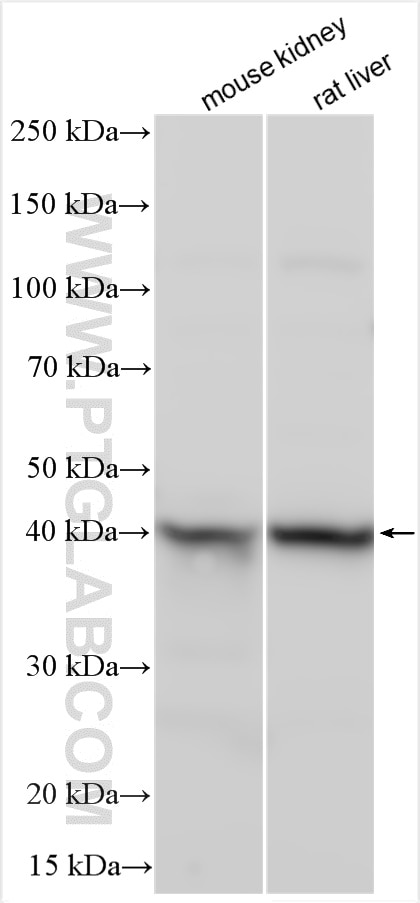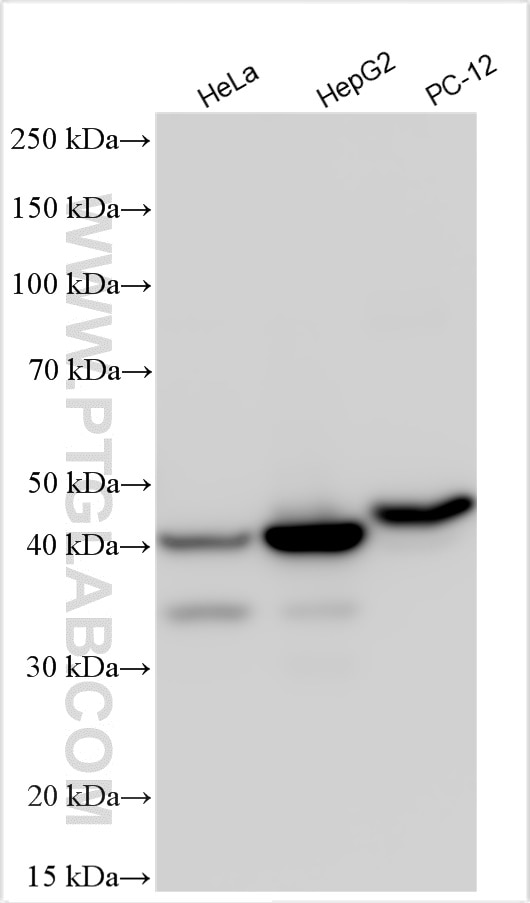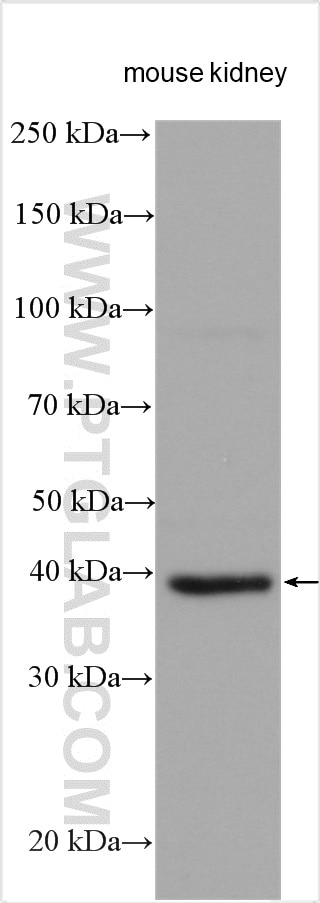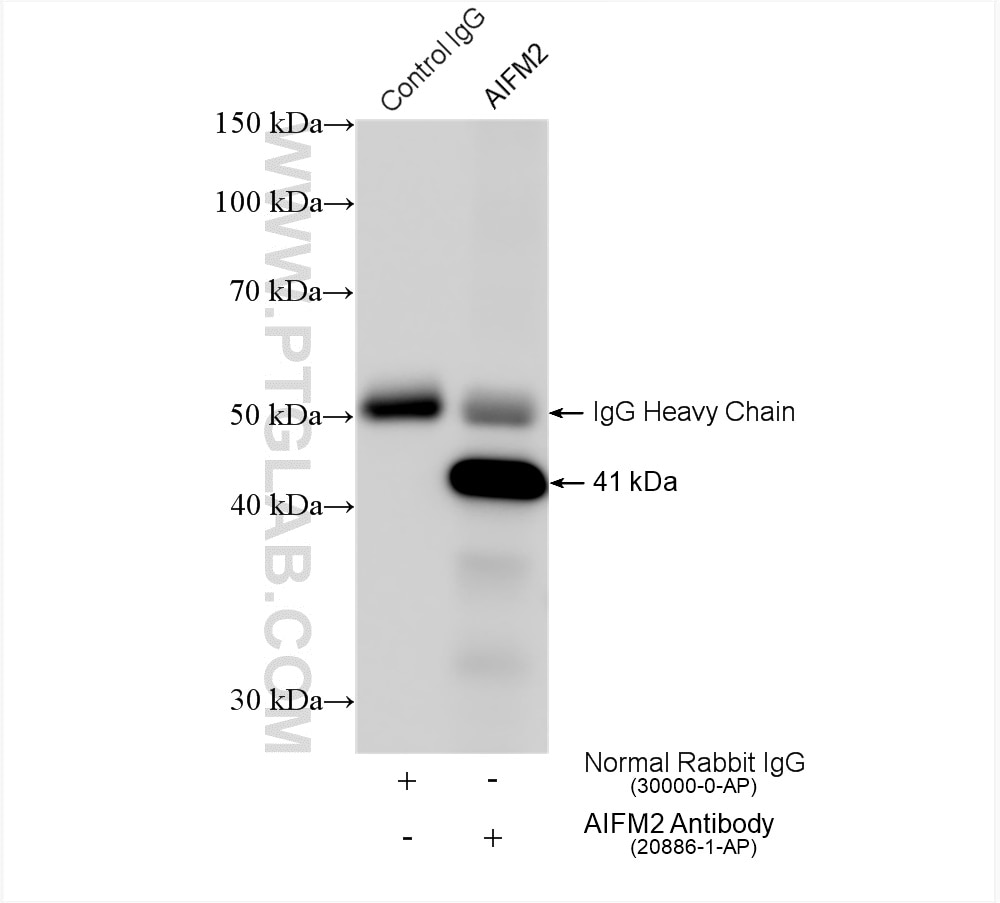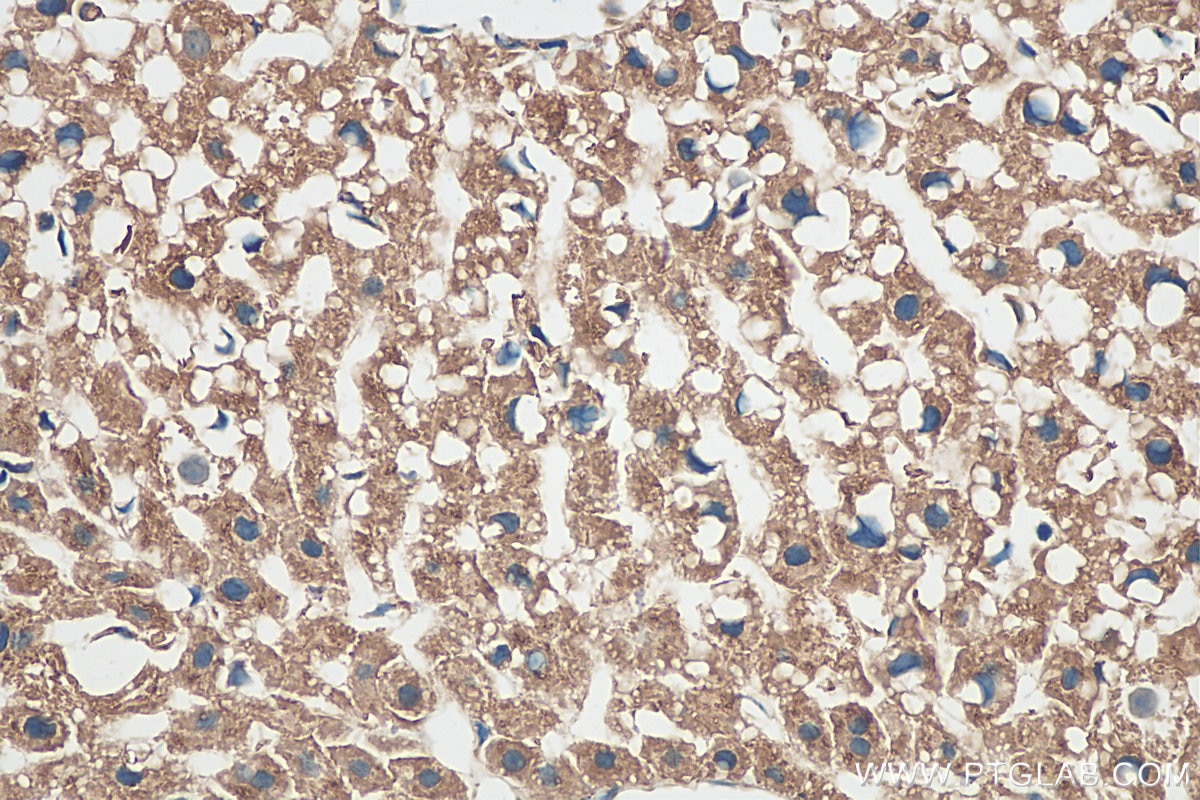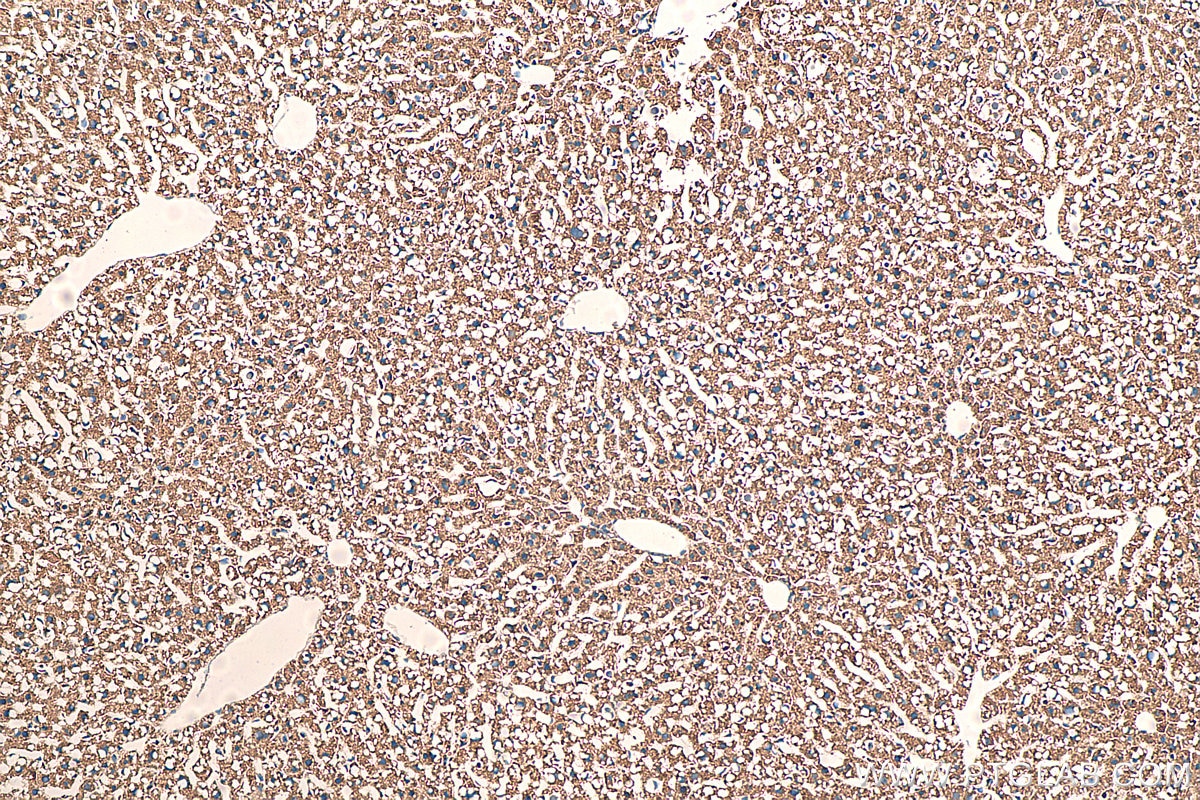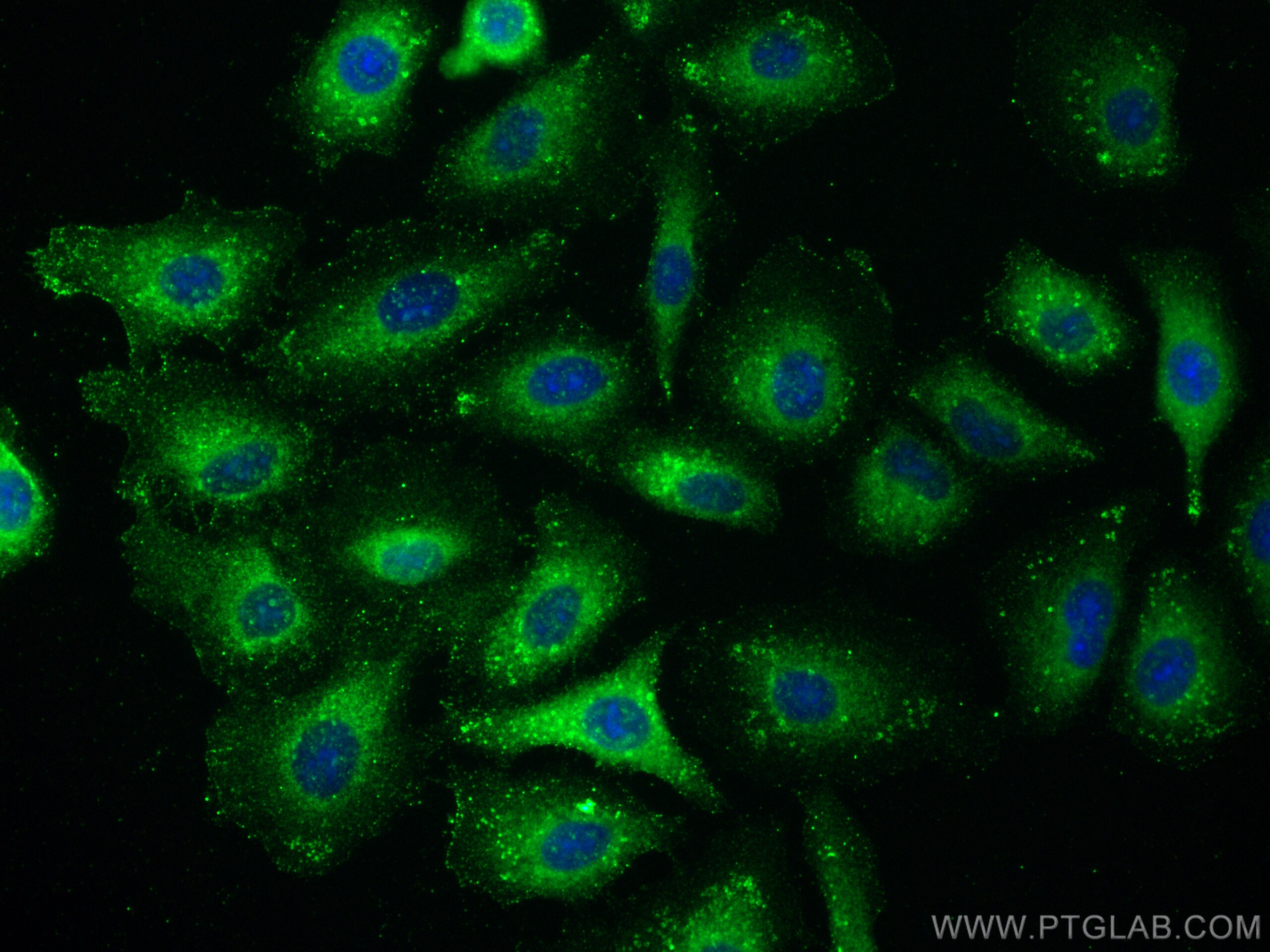Validation Data Gallery
Tested Applications
| Positive WB detected in | mouse kidney tissue, HeLa cells, rat liver tissue, HepG2 cells, PC-12 ceslls |
| Positive IP detected in | L02 cells |
| Positive IHC detected in | mouse liver tissue Note: suggested antigen retrieval with TE buffer pH 9.0; (*) Alternatively, antigen retrieval may be performed with citrate buffer pH 6.0 |
| Positive IF/ICC detected in | A549 cells |
Recommended dilution
| Application | Dilution |
|---|---|
| Western Blot (WB) | WB : 1:1000-1:8000 |
| Immunoprecipitation (IP) | IP : 0.5-4.0 ug for 1.0-3.0 mg of total protein lysate |
| Immunohistochemistry (IHC) | IHC : 1:50-1:500 |
| Immunofluorescence (IF)/ICC | IF/ICC : 1:50-1:500 |
| It is recommended that this reagent should be titrated in each testing system to obtain optimal results. | |
| Sample-dependent, Check data in validation data gallery. | |
Published Applications
| KD/KO | See 7 publications below |
| WB | See 155 publications below |
| IHC | See 20 publications below |
| IF | See 26 publications below |
| IP | See 4 publications below |
| CoIP | See 2 publications below |
Product Information
20886-1-AP targets AIFM2/ FSP1 in WB, IHC, IF/ICC, IP, CoIP, ELISA applications and shows reactivity with human, mouse, rat samples.
| Tested Reactivity | human, mouse, rat |
| Cited Reactivity | human, mouse, rat, pig, duck |
| Host / Isotype | Rabbit / IgG |
| Class | Polyclonal |
| Type | Antibody |
| Immunogen |
CatNo: Ag13412 Product name: Recombinant human AIFM2 protein Source: e coli.-derived, PGEX-4T Tag: GST Domain: 1-373 aa of BC023601 Sequence: MGSQVSVESGALHVVIVGGGFGGIAAASQLQALNVPFMLVDMKDSFHHNVAALRASVETGFAKKTFISYSVTFKDNFRQGLVVGIDLKNQMVLLQGGEALPFSHLILATGSTGPFPGKFNEVSSQQAAIQAYEDMVRQVQRSRFIVVVGGGSAGVEMAAEIKTEYPEKEVTLIHSQVALADKELLPSVRQEVKEILLRKGVQLLLSERVSNLEELPLNEYREYIKVQTDKGTEVATNLVILCTGIKINSSAYRKAFESRLASSGALRVNEHLQVEGHSNVYAIGDCADVRTPKMAYLAGLHANIAVANIVNSVKQRPLQAYKPGALTFLLSMGRNDGVGQISGFYVGRLMVRLTKSRDLFVSTSWKTMRQSPP 相同性解析による交差性が予測される生物種 |
| Full Name | apoptosis-inducing factor, mitochondrion-associated, 2 |
| Calculated molecular weight | 41 kDa |
| Observed molecular weight | 41 kDa |
| GenBank accession number | BC023601 |
| Gene Symbol | AIFM2/ FSP1 |
| Gene ID (NCBI) | 84883 |
| RRID | AB_2878756 |
| Conjugate | Unconjugated |
| Form | |
| Form | Liquid |
| Purification Method | Antigen affinity purification |
| UNIPROT ID | Q9BRQ8 |
| Storage Buffer | PBS with 0.02% sodium azide and 50% glycerol{{ptg:BufferTemp}}7.3 |
| Storage Conditions | Store at -20°C. Stable for one year after shipment. Aliquoting is unnecessary for -20oC storage. |
Background Information
The human AIFM2 protein (also known as FSP1 or AMID) is an apoptosis-associated flavoprotein with a 6-hydroxy FAD cofactor. AIFM2 is a NAD(P)H-binding oxidoreductase with some sequence similarities to A1FM1 (formerly known as AIF, Apoptosis-Inducing Factor), a mitochondrion-associated enzyme that relocates to the cell nucleus during apoptosis and is considered to be a key player in the progression of cell death.
Protocols
| Product Specific Protocols | |
|---|---|
| IF protocol for AIFM2/ FSP1 antibody 20886-1-AP | Download protocol |
| IHC protocol for AIFM2/ FSP1 antibody 20886-1-AP | Download protocol |
| IP protocol for AIFM2/ FSP1 antibody 20886-1-AP | Download protocol |
| WB protocol for AIFM2/ FSP1 antibody 20886-1-AP | Download protocol |
| Standard Protocols | |
|---|---|
| Click here to view our Standard Protocols |
Publications
| Species | Application | Title |
|---|---|---|
Cell ALDH7A1 protects against ferroptosis by generating membrane NADH and regulating FSP1 | ||
Cell Res Mitochondria-localized cGAS suppresses ferroptosis to promote cancer progression | ||
Drug Resist Updat Upregulation of CoQ shifts ferroptosis dependence from GPX4 to FSP1 in acquired radioresistance | ||
Nat Cell Biol Gut microbial metabolite facilitates colorectal cancer development via ferroptosis inhibition | ||
Protein Cell Proteomic analysis of ferroptosis pathways reveals a role of CEPT1 in suppressing ferroptosis |

